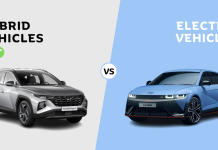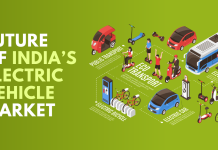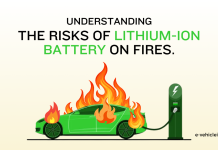
Artificial Intelligence is almost used in every facet of the car-manufacturing process, from Industrial Robots manufacturing a vehicle to the car navigating traffic.
Table of Contents
What is Artificial Intelligence?
Artificial Intelligence is the simulation of human intelligence processes by machines, especially by a computer system. Machine learning is one of the main branches of AI, which is defined as the study of algorithms or a huge volume of historical data to be inserted in a machinery to perform specific tasks.
Companies like Tesla, Google, and Bosch have all incorporated AI into their self-driving car research and leading the Automobile industry.
The future is electric and it cannot exist without AI. Artificial Intelligence is important to evolution.
Artificial Intelligence in the Electric Vehicle Industry
Vehicle Electrification is the mightiest driving factor in the automotive industry. The Engineers want vehicles that are fast at the same time eco-friendly and desirable to their users, this is a very daunting challenge.
AI plays a significant role in the development of intelligent machinery, it provides a cost-effective and modular solution to complex problems in the automotive industry. AI is the one-stop answer to emerging problems like;
Electric vehicles Technology & AI Energy Management Challenge
As the world faces a huge calamity in the form of air pollution and climate change, there is a huge need for people to shift to Electric vehicles. Artificial Intelligence can be seen as the manufacturing capabilities, efficiency, and accuracy, reduce energy consumption and be the leader in the mass production of electric vehicles.
Battery Costs
Battery manufacturing can be a task and to bring down the battery pack it is essential to focus on machine learning to find low-cost, high-performing battery materials. Therefore in order to maximize energy efficiency and add additional driving range while easing consumer “range anxiety,” artificial intelligence (AI) algorithms and controls can deliver a realistic driving-range estimation.
Access To Charging Stations
A smart grid and easier access to charging stations can be game changer in the EV industry. The AI has the ability to determine and estimate the best sites and resources for charging stations, leading to minimal congestion at charging ports. AI algorithms make it simpler to manage EVs and power-generation interactions.
Intelligent Autonomous System
IAS is the new generation of computer systems that are more than able to think and learn like humans. They have the ability to store and use a large amount of data and make decisions faster than ever.
IASs are introduced in the EVs mostly to provide the user with the utmost safety, better driving experience, and cost savings. One of the features of AI in electric vehicles is whenever the batteries run low, it automatically switches to battery mode and recharges.
Businesses are beginning to view AI as a foundational technology for self-driving automobiles. The following list highlights some of the key functions that artificial intelligence plays in electric cars.
- Wireless power transfer in smart grids
- Eco-system and architecture
- vehicle design, modeling optimization
- Car software, electronics architecture
- Automotive and grid-scale optimization
- power supply management
- Vehicle life cycle assessment
- Charging and Discharging scheduling
AI and the EV Ecosystem
Tesla Model S 100d, with a range of 355 miles, Hyundai Kona with 198, or the MG ZS EV with a range of 214 miles. Range anxiety is not the only concerning matter her but also the charging time of the battery packs. Lithium-ion batteries do not get charged as fast as compared to polymer batteries Data science, AI, and big data tools are used to improve the performance of battery packs.
Recently Ford has been in news about a collaboration with Google, Ford wants to use Google’s AI to provide customers with improved experiences by accelerating the modernization of product development. Big giants like Tesla and Volkswagen plan on doing the same.
IIT Hyderabad nurtured start-up- PURE EV has come up with an idea, artificial intelligence-driven hardware to repair Li-ion batteries automatically. The researchers and data scientists at the same time have made an Artificial Neural Network that has the talent to detect defects in the batteries, it is an ANN-based algorithm named ‘BaTRics Faraday’.
Tork Motors is India’s very first Electrical Motorcycle start-up. Ratan Tata has also invested in this venture. Tork Motorcycles are powered by TIROS i.e. Tork Intuitive Response System, this is an operating system that facilitates motorcycle performance parameters, riding pattern data, and GPS data that can explain terrain irregularities. TIROS makes there is no defect in any part of the EV, this prevents so many accidents.
FLO Mobility has been looking forward to manufacturing automated e-scooters that would function without an on-field human. This will solve so many EV fleet problems like optimizing charge cycles, last-mile movement to match demand-supply, vehicle cluttering, and paving the way to build seamless micro-mobility operations.
The outcome of these new trends where AI is taking over the EV industry is mainly positive, with AI every vehicle becomes a smart vehicle. It is impossible to see people not buy an EV after the introduction of AI in the industry.
Read More: E-Mobility – Adoption Strategy, Challenges, and Route-Ahead






